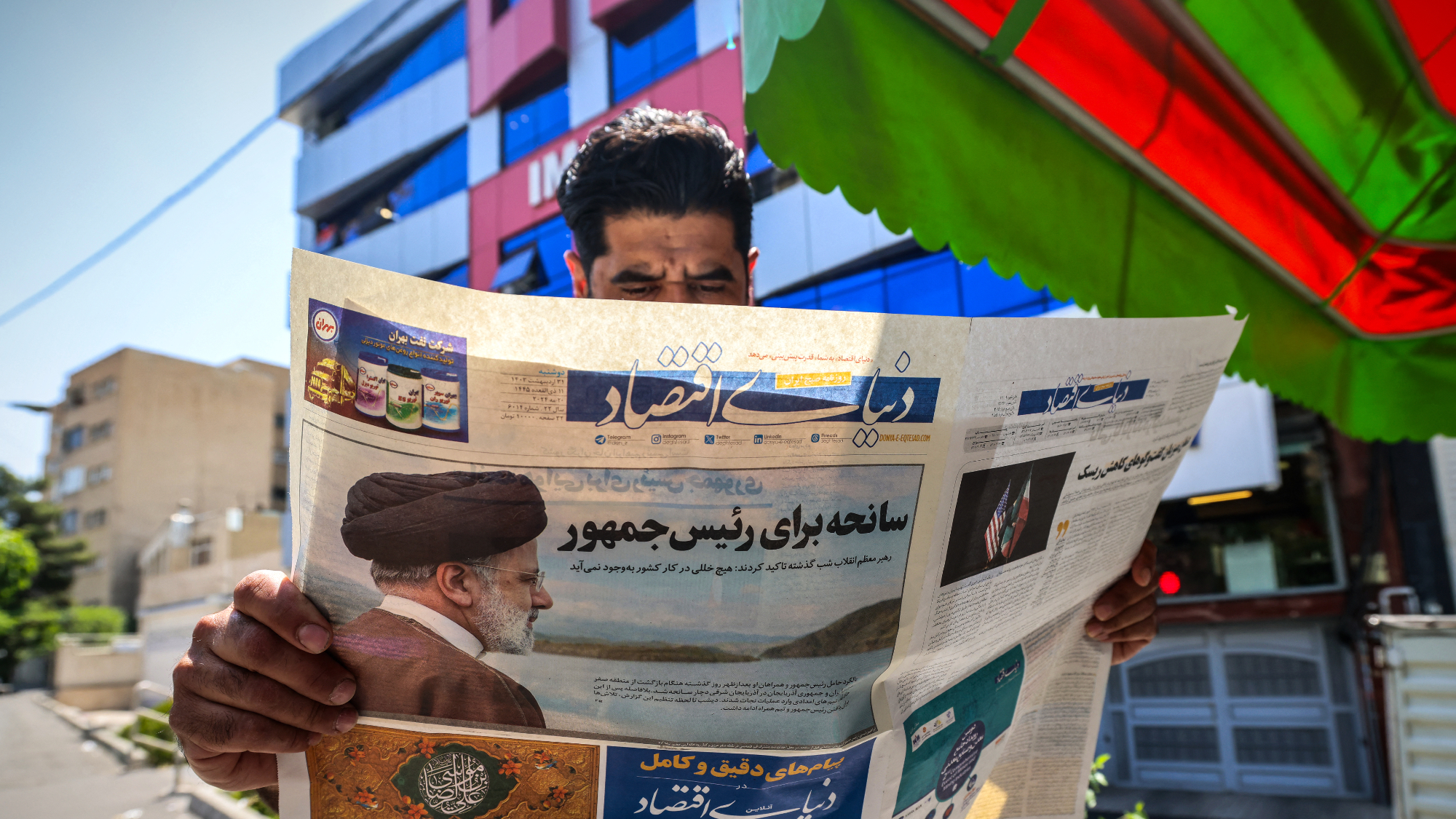Iran president dead in helicopter crash
Iranian President Ebrahim Raisi and Foreign Minister Hossein Amir-Abdollahian were found dead at the site


A free daily email with the biggest news stories of the day – and the best features from TheWeek.com
You are now subscribed
Your newsletter sign-up was successful
What happened
Iranian President Ebrahim Raisi is dead, along with Foreign Minister Hossein Amir-Abdollahian and seven other people traveling aboard a helicopter that crashed Sunday, Iranian state TV said Monday morning. Rescuers reached the remote crash site hours after the helicopter made what authorities originally called a "hard landing" amid thick fog in mountainous terrain in northwestern Iran.
Who said what
"We assure our loyal and appreciative and beloved nation that the path of service will continue with the tireless spirit of Ayatollah Raisi," Raisi's Cabinet said after an emergency meeting.
Raisi, a 63-year-old conservative hardliner elected in 2021, was close with Ayatollah Ali Khamenei and widely considered a potential successor to the 85-year-old supreme leader. But he and "his conservative government were not popular among the majority of Iranians because they had reinstated oppressive social rules" and "violently cracked down on dissent," especially mass protests sparked by the 2022 death of Mahsa Amini, The New York Times said. Raisi also oversaw Iran's first direct attack on Israel and armed Russia for its war in Ukraine.
What next?
Raisi's death "is not expected to disrupt the direction of Iranian policy or jolt the Islamic Republic in any consequential way," but it will "test" the hardliners' total grip on power, the BBC said. Assuming Khamenei approves, First Vice President Mohammad Mokhber will assume the duties of the presidency, as stipulated in Iran's constitution. Elections are to be called within 50 days.
The Week
Escape your echo chamber. Get the facts behind the news, plus analysis from multiple perspectives.

Sign up for The Week's Free Newsletters
From our morning news briefing to a weekly Good News Newsletter, get the best of The Week delivered directly to your inbox.
From our morning news briefing to a weekly Good News Newsletter, get the best of The Week delivered directly to your inbox.
A free daily email with the biggest news stories of the day – and the best features from TheWeek.com
Rafi Schwartz has worked as a politics writer at The Week since 2022, where he covers elections, Congress and the White House. He was previously a contributing writer with Mic focusing largely on politics, a senior writer with Splinter News, a staff writer for Fusion's news lab, and the managing editor of Heeb Magazine, a Jewish life and culture publication. Rafi's work has appeared in Rolling Stone, GOOD and The Forward, among others.
